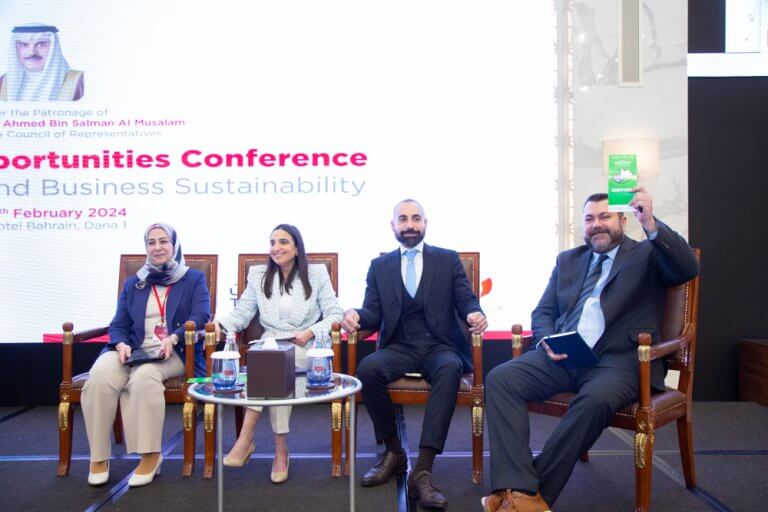In a highly thought-provoking event, a panel of eight experts engaged in a debate on the topic of “AI Will Replace Humans.” The event, held within the 7th Equal Opportunity Conference, attended by leaders, academics, and industry experts from various fields to discuss the implications of artificial intelligence (AI) on the future of work and society.
The debate featured four individuals who argued in favour of the debate subject: Ms. Esmat Ali Jaffar, Genaeral Director NQF & National Examination, BQA Bahrain, Dr. Lefteris Kretsos, Lecturer, Brunel University London, UK, Dr. Esra AlDhaen, Executive Director, Strategy Quality and Sustainability, Ahlia University, Dr. Ammar AlHawaj, Executive Director, Communication and International Relations, Ahlia University. They asserted that AI possesses the capability to replace human labour across diverse industries.
Simultaneously, an opposing group of four individuals presented compelling arguments against the motion: Prof. Mansoor Alaali, President of Ahlia University, Dr. Hanan Nasser, Associate Provost (Interim), AUBH Bahrain, Dr. Reem Hamdan, Acting VP for Academic Affairs, UCB Bahrain, Dr. Mohamed Kanan, Vice Dean of Scientific Research, UBT KSA. They emphasised the unique qualities and abilities that make humans indispensable in the face of advancing AI technologies.
Throughout the debate, the panellists meticulously articulated their viewpoints, drawing upon extensive research, practical experiences, and theoretical insights. The speakers in favour of AI replacing humans highlighted the potential benefits, such as increased efficiency, cost-effectiveness, and the elimination of mundane tasks. They confirmed the capacity of AI to revolutionise industries and liberate humans to pursue higher-order cognitive and creative tasks. On the other hand, the panellists opposing the motion emphasised the human qualities that cannot be replicated by AI. They emphasised the importance of empathy, emotional intelligence, critical thinking, and the ability to adapt to complex and unpredictable situations. They argued that while AI can augment human capabilities, it cannot fully replace the depth and breadth of human skills and intuition.
The integration of robots in the workforce has sparked the debate on whether they will replace humans. However, the opposition team argued that technology should be seen as an assistant rather than a substitute for humans. They emphasised that while technology has its benefits in terms of efficiency and cost-effectiveness, it lacks the ability to handle unexpected situations and events. They provided examples of robots successfully aiding in court cases and performing critical medical procedures, but highlighted that human skills and adaptability are still essential. Moreover, they asserted that the integrating AI creates new job opportunities that require human expertise. Ultimately, the team recommended a collaborative relationship between humans and AI, to enhance productivity and problem-solving, while recognising the unique value humans bring to the workforce.
At the conclusion of the debate, the audience had the opportunity to cast their votes, expressing their stance on the subject matter. The results showed that a significant majority, 64% of the audience, voted against the idea of AI replacing humans. This outcome underscores the prevailing sentiment that while AI holds immense potential, it is unlikely to completely supplant human involvement in various spheres of life.




